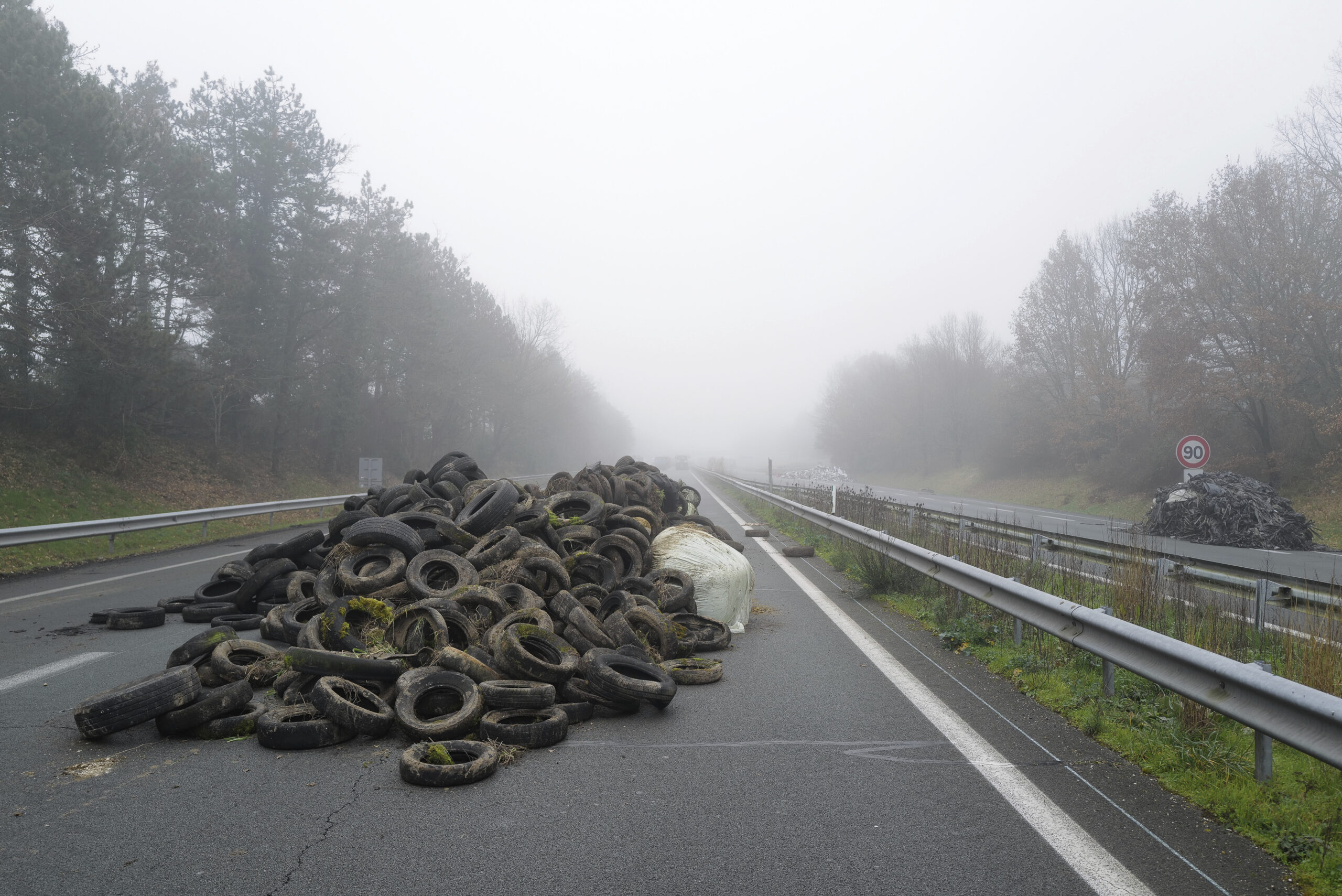PARIS (AP) — Angry French farmers Saturday threatened to converge on Paris in the coming days as traffic barricades were only partially lifted on the country’s major roads. The developments came a day after the government announced a series of measures the farmers said do not fully address their demands.
The farmers’ movement, seeking better remuneration for their produce, less red tape and protection against cheap imports has spread in recent days across the country, with protesters using their tractors to shut down long stretches of road and slow traffic. They’ve also dumped stinky agricultural waste at the gates of government offices.
While some of the barricades were gradually being lifted on Saturday, highway operator Vinci Autoroutes said the A7, a major highway heading through southern France, was still closed. Some other roads were also partially closed, mostly in southern France.
Vinci Autoroutes noted that the blockades on two highways leading to Paris have been removed, as well as on the major route to Spain. The highway from Lyon, in eastern France, to Bordeaux, in the southwest, also been reopened on Saturday, the company said in a statement.
Near southwestern Agen, where the protests originated, the A62 highway was closed Saturday, with farmers gathering around fires fed by wooden pallets. One of the parked tractors was carrying a poster reading “We won’t die without saying a word.”
In Agen’s city centre, a plaza close to the prefecture building still looked like an open-air dump, after protesters on Friday heaped tires, hay, manure and pieces of wood.
Some angry farmers were planning to give a new boost to the mobilisation next week, threatening to block traffic around Paris for several days, starting Sunday evening.
José Pérez, co-president of the Rural Coordination union in the Lot-et-Garonne region, told news broadcaster BFM that his group will head toward Paris on Monday. Their aim is to “block” the Rungis International Market that supplies the capital and surrounding region with much of its fresh food, he said.
President Emmanuel Macron’s new prime minister, Gabriel Attal, announced a series of measures Friday during a visit to a cattle farm in southern France. They include “drastically simplifying” certain technical procedures and the progressive end to diesel fuel taxes for farm vehicles, he said.
Attal also confirmed that France would remain opposed to the European Union signing a free-trade deal with the Mercosur trade group, as French farmers denounce what they see as unfair competition from Latin American countries. The agreement has been under negotiation for years.
In response to Attal’s announcement, France’s two major farmers unions quickly announced their decision to continue the protests, saying the government’s plan doesn’t go far enough.
Several thousand people gathered Saturday in the town of Pamiers in the Ariege region in the Pyrenees mountains to pay tribute to a 36-year-old female farmer and her 12-year-old daughter who were killed at a roadblock when a car rammed into a barricade of hay bales on Tuesday.
The protests in France are also symptomatic of discontent in agricultural heartlands across the European Union. The influential and heavily subsidised sector is becoming a hot-button issue ahead of European Parliament elections in June, with populist and far-right parties hoping to benefit from rural disgruntlement against free trade agreements, burdensome costs worsened by Russia’s war in Ukraine and other complaints.
In recent weeks, farmers have staged protests in Germany, the Netherlands, Poland and Romania.



